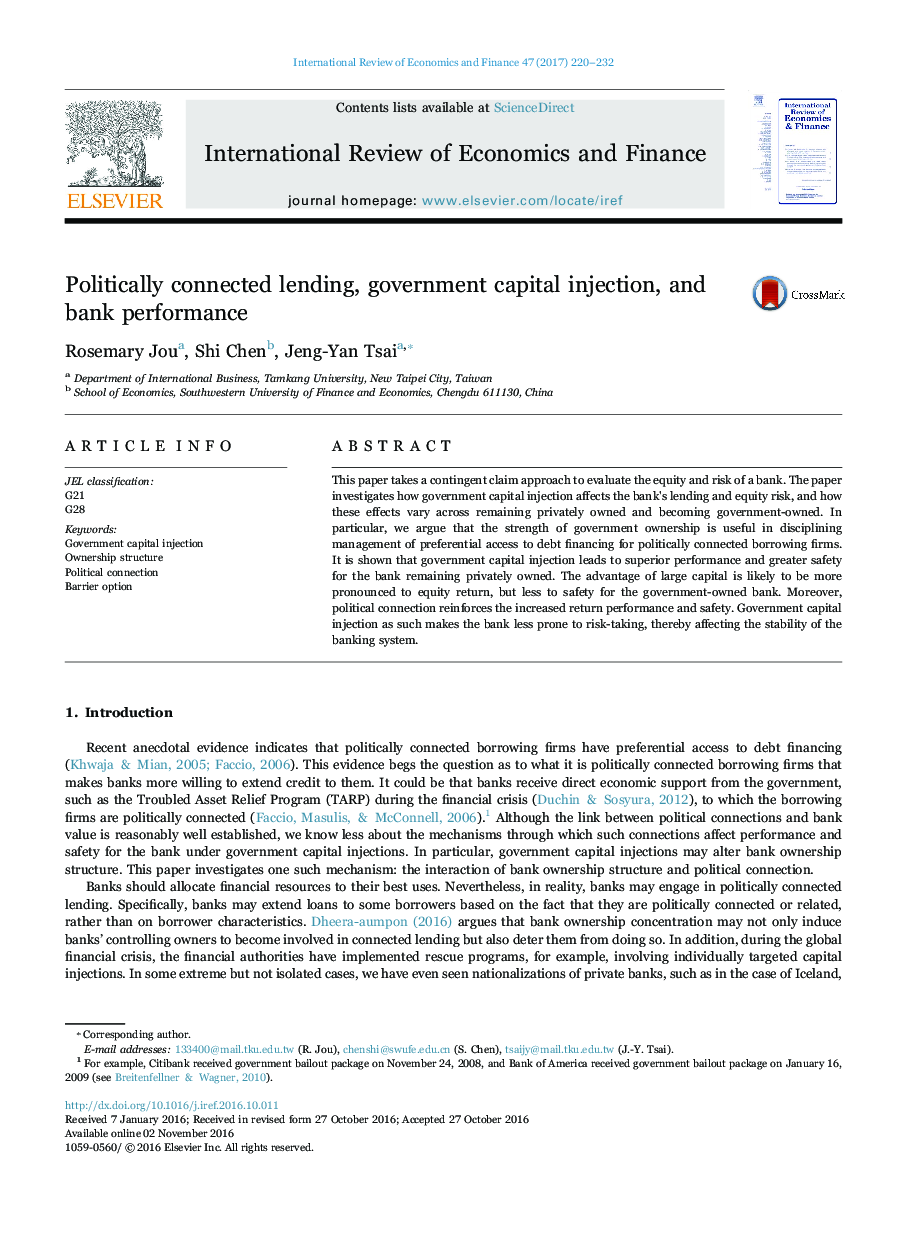| Article ID | Journal | Published Year | Pages | File Type |
|---|---|---|---|---|
| 5083187 | International Review of Economics & Finance | 2017 | 13 Pages |
â¢The paper examines bank performance with alternative bank ownership structures.â¢Government capital injection leads to superior performance and greater safety for the bank remaining privately owned.â¢The advantage of large capital is likely to be more pronounced to equity return, but less to equity risk.â¢Political connection reinforces the increased equity return and the decreased equity risk.â¢Government capital injection with political connection contributes to the stability of the banking system.
This paper takes a contingent claim approach to evaluate the equity and risk of a bank. The paper investigates how government capital injection affects the bank's lending and equity risk, and how these effects vary across remaining privately owned and becoming government-owned. In particular, we argue that the strength of government ownership is useful in disciplining management of preferential access to debt financing for politically connected borrowing firms. It is shown that government capital injection leads to superior performance and greater safety for the bank remaining privately owned. The advantage of large capital is likely to be more pronounced to equity return, but less to safety for the government-owned bank. Moreover, political connection reinforces the increased return performance and safety. Government capital injection as such makes the bank less prone to risk-taking, thereby affecting the stability of the banking system.
